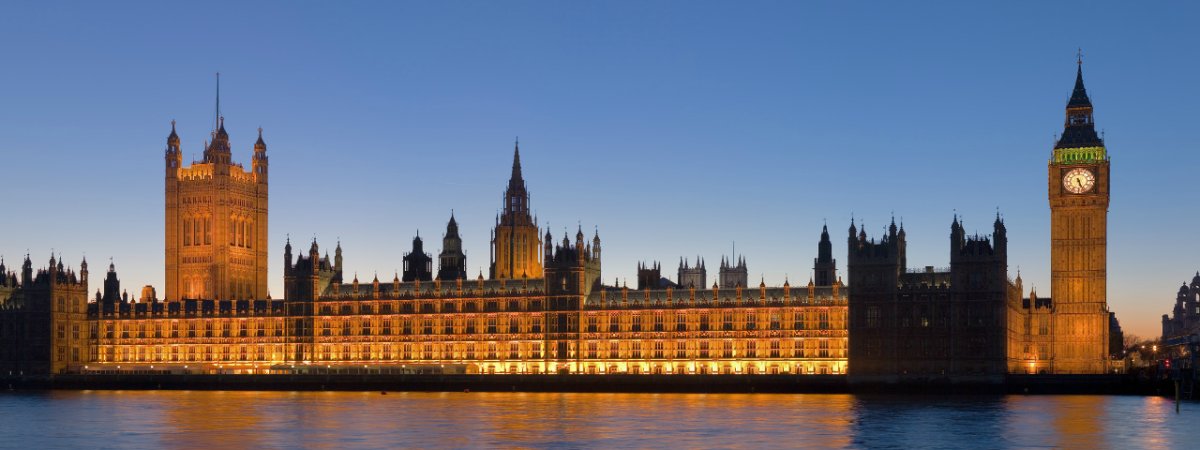In memoriam: David Henderson
SUGGESTED



David had a distinguished 70-year career as an economist. He began work as a Fellow of Lincoln College, Oxford, and at University College London, where he was Professor of Economics. He then joined the Economic Section of the Treasury, later becoming Chief Economist in the Ministry of Aviation. Following a spell at the World Bank, he became Head of the Economics and Statistics Department of the OECD in Paris. In 1985 he gave the BBC Reith Lectures, where he introduced the idea of ‘Do-it-yourself economics’, a shorthand term for the lazy thinking of conventional policymakers who don’t understand the consequences of their interventionism. He also traced his own evolution from Keynesianism to liberalism.
After leaving the OECD in 1992, David became an independent author and consultant, and was a Visiting Fellow or Professor at many institutions, including the Centre for European Policy Studies in Brussels, Monash University in Melbourne, the Fondation Nationale des Sciences Politiques in Paris, the Royal Institute of International Affairs, the New Zealand Business Roundtable, and Westminster Business School. Latterly he was closely involved with the Global Warming Policy Foundation where he excoriated a new type of lazy policy-making where virtue-signalling often seems more important than effectiveness.
Among his publications for the IEA were The Changing Fortunes of Economic Liberalism, Anti-Liberalism 2000 and The Role of Business in the Modern World. In these studies he critically examined the growing trend to discover more and more reasons for government intervention across the developed world. He also exposed the shallowness, contradictions and dangers of fashionable ideas about corporate social responsibility.
David was an old-fashioned economist, and none the worse for it. He was trained in the economic classics, and was not a mathematician or econometrician; nor did he want to be. But he had a ruthlessly logical mind, a clarity of vision and a gift for written exposition, characteristics which he maintained right to the end of his life. His last communication with the IEA was to propose a new article for Economic Affairs on the concept of ‘market failure’, something which he saw as being intimately associated with the loose and sloppy thinking he had contested all his adult life. Sadly the article was never completed.
We extend our sympathies to David’s family and his many friends.
10 thoughts on “In memoriam: David Henderson”
Comments are closed.





David came to Australia in the mid-1990s when I was living there. I think he was based there until early in the present century. His reputation as the 1986 Reith Lecturer preceded him, and he quickly became prominent on the university and think-tank circuits in Melbourne and also in Wellington, home of the New Zealand Business Roundtable. He said he wanted to treat Australia as a test case of the success of ideas promoting economic reform, and he went on to gain a global perspective on that subject. From a journal editor’s perspective he was a dream contributor, always eager to contribute and displaying an old-fashioned devotion to clear writing and rigorous proof-reading. His combination of expertise and conviviality ensures that he will be long remembered by those who encountered him.
David was a wonderful man, and in the past 5 years took me to lunch on several occasions to discuss policy issues. He was an attentive listener, with a clarity of thought and language, and a generosity of time, that we could do with far more of in the economic sphere.
He took me to task via email one time for a blogpost I had written in which I had alluded to a famous free-market economist supporting a carbon tax. David insisted that I was mistaken. I searched in vain to find my supporting evidence, but alas could not. He was right. This was typical of his rigour. And it taught me a harsh lesson about protecting against sloppiness in my work.
As it happens, I have been putting some thought to the misuse of “market failure” in public debate. Just today, the Prime Minister Theresa May used the term incredibly broadly in her party conference speech. It would be wonderful if classical liberal economists could expose this sloppy thinking, and do this subject justice, in his honour. RIP.
From the days when I first came across him at the IEA and as a result of my work with Alan Peacock, David was very supportive of the University of Buckingham. He gave seminars (I especially remember his critique of the Corporate Social Responsibility literature) and contributed to a symposium of papers in honour of Norman Barry published in 2009 as ‘Classical Liberalism in the 21st Century’. His presence on the Advisory Council at the IEA will be greatly missed.
Martin Ricketts
David made a unique contribution to economic debate in New Zealand. His was a disciplined OECD-wide perspective.
In particular, his monograph, “Economic reform: New Zealand in an International Perspective”, New Zealand Business Roundtable, August 1996 countered the prevailing criticism that New Zealand’s economic reforms represented extreme liberalism when assessed in an OECD-wide context. He also pointed out that government spending remained at illiberal levels.
His historical perspective was also valuable. I remember, hopefully accurately, his pointing out to me two deficiencies in John Stuart Mill’s landmark essay On Liberty. One was its neglect of common law. The other was to leave the definition of a harm to others too open to interpretation.
His regard for the facts and precision of thought and language were exemplary. It was a privilege to know him and he will be missed. But the example he set endures.
Bryce Wilkinson
Capital Economics Limited
Wellington
New Zealand
Ryan’s description of David is spot on: “a wonderful man… an attentive listener, with a clarity of thought and language”, and of course his “rigour”. That’s what I remember too, from numerous interactions over time, mainly at the IEA. He cared strongly, not only that his own analysis should be right, but also that others got it right. He could not abide casual or thoughtless analysis or practice. Witness for example his crusades against inappropriate exchange rates in comparing national income figures and against improper measurement of climate change. I feel privileged to have known him.
I never met David but we had a fun correspondence in the mid-1990s. I had heard of him and his work and he had heard of me and mine. I’m guessing that people were getting him confused with me and vice-versa because we have the same name.
David initiated the correspondence, sending me a letter with an enclosure of some witty correspondence between a lesser-known journalist named Winston Churchill and the Winston Churchill. (I confess that I don’t remember if the correspondence was from only the Winston Churchill we all know of or it was two-way—my copy of the correspondence was destroyed in my office fire in 2007.) Anyway, David proposed that I use my middle initial, R, so that people could distinguish between us. I have done so faithfully ever since (and I did so most of the time before that correspondence.)
It didn’t work. People rarely pay attention to middle initials. So I had a few people, including one at the Mont Pelerin Society, approach me with a request to autograph a book that the British David had written. I wonder if he had people approach him with copies of my books to autograph. I even had people approach me over the years to give talks in various attractive venues on the topic of corporate social responsibility. I resisted the temptation and informed them that they probably meant to contact the British David Henderson. In one case I accepted because the issue was the economics of global warming and I had started to look into that area and the person who asked me knew my work. It turns out that I figured out, after I had accepted and started working on my talk, that they must have meant the British David because he had moved on to that area. The talk, which was at Goldman Sachs in New York, went well, which doesn’t mean that I persuaded many people.
Sadly, I never met David but I gather from the “In Memoriam” above and from the above comments that I would have like him.
David had some involvement with one of my first publications as Editorial Director which was on global warming. He went through it and explained its shortcomings and strengths with extraordinary rigour. He flawed me slightly because we have all our publications peer reviewed, but he did not approve of peer review on principle. So he refused to supply a recommendation. Maybe I should just end by mentioning the phrase “New Millennial Collectivism” which he coined to describe (for example) those involved in anti-globalisation riots. How right he was in identifying the dangers of the collectivist movement developing steam amongst that generation. Great man. Always walked up to me saying “now then mate, how are you?”.
ALBERT MINGARDI writes:
I loved his The Role of Business in the Modern World, published in 2004. Here, as in other works, David dealt with “corporate social responsibility”, which became a buzzword right after the Enron scandal. Henderson understood CSR as a way to have businesses pursuing non-economic objectives: that is, prioritizing other goals than the the pursuit of profit (and other beneficiaries than shareholders). This was in some way a compliment the enemies of the market economy paid to it: to achieve their goals, it is better to turn to business rather than to direct state intervention, which is, in fact, another way to admit that the government is too inefficient to achieve its own ends. And yet Henderson saw it as something breeding confusion and potentially weakening business performance.
The book claims the importance of profit-oriented enterprises in fostering economic progress and does it beautifully. As it happens with many of the IEA’s “Hobart Papers”, it is not only a text that was of use in the public policy battles of the day, but can be profitably read years after it was written.
Len remembers Henderson as “an old-fashioned economist”. I shall add: “an old-fashioned gentleman,” too. It was a privilege to know him: a kind and thoughtful man. May he rest in peace.
There is an interesting obituary of David in The Times today (6 November).
Wonderful post however , I was wanting to know if you could write a litte more on this topic? I’d be very grateful if you could elaborate a little bit further. Bless you!